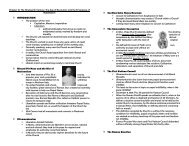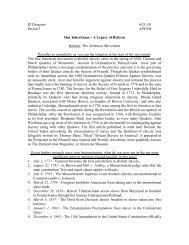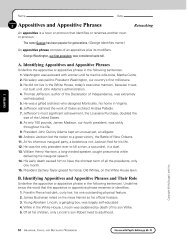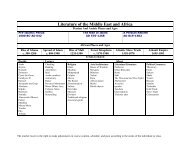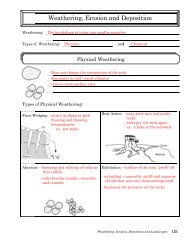Tarbiyah Project
Tarbiyah Project
Tarbiyah Project
You also want an ePaper? Increase the reach of your titles
YUMPU automatically turns print PDFs into web optimized ePapers that Google loves.
Vision<br />
CURRENT CHALLENGE<br />
Islam is founded on the principles of belief and righteous<br />
conduct. This connection between values and practice lies at<br />
the very heart of the Islamic way of life. Neverheless, a crisis<br />
in values and character development exists throughout the<br />
Muslim ummah today that is working to undermine the fabric<br />
of the Islamic spiritual, moral and social system. Lacking a<br />
clear moral compass, Muslims today find themselves<br />
marginalized socially, disoriented spiritually, and generally in<br />
a quandary about their role and responsibility in modern<br />
society. Without a proper understanding of the Islamic value<br />
system, there is little hope that the true goals, or maqasid, of<br />
Islam can be achieved.<br />
Furthermore, the system of education in Muslim society has<br />
played a major role in the lack of strong character<br />
development among today’s Muslim youth. This includes the<br />
system of Islamic religious education as well. Many Muslim<br />
educators and practitioners would acknowledge that Islamic<br />
education, as it is taught today, has been ineffective in<br />
teaching and inspiring Muslim children to adopt and adhere<br />
to Islam as a way of life and a system of personal and social<br />
values.<br />
The crisis of modern-day Islamic education is rooted, in large<br />
part, in the way we teach our children about Islam. This<br />
approach, which focuses primarily on conveying “information”<br />
about Islam, has failed to capture the hearts and minds of our<br />
youth. A renewed approach is therefore needed—one that<br />
addresses the real needs and concerns of students themselves.<br />
The field of Islamic values education—with its focus on<br />
beliefs, values, manners, feelings, attitudes, and moral<br />
literacy skills—should be the focus of contemporary Islamic<br />
education, as it was in the time of the Noble Prophet ().<br />
Fortunately, a sense of renewal is in the air today and<br />
enlightened Muslims are eager to find real solutions to the<br />
problems and challenges facing the Muslim community and, if<br />
necessary, to re-examine traditional paradigms within<br />
Muslim society—including how and what we teach our<br />
children about Islam. To achieve this goal, a unified and<br />
concerted effort is needed. Muslim educators, practitioners<br />
and families must increase and unify their efforts to find<br />
creative solutions that will effectively bridge the gap between<br />
values and practice in the upcoming generation of Muslim<br />
youth. Islamic schools have a crucial role to play in developing<br />
solutions and programs that will help foster this<br />
Towards a Renewed Vision of Islamic Education<br />
VISION<br />
“The crisis of modernday<br />
Islamic education is<br />
rooted, in large part, in<br />
the way we teach our<br />
children about Islam.”<br />
Page 1




